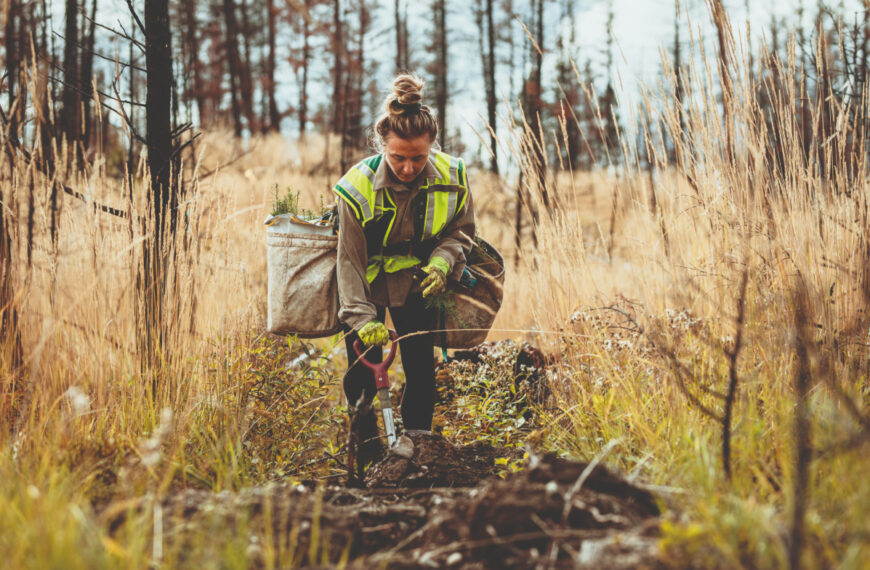
We speak to eight geography and environmental science students about how their degrees sparked passions, built skills and opened doors to meaningful careers.

Francesca Funnell
Human Geography
Cardiff University/Prifysgol Caerdydd
I made my decision about going to university by reflecting on my passions – writing, a strong interest in social justice, and connecting with others. When I thought about these things, it became clear that university was the next step for me. While I’d always had a sense I’d pursue higher education, it wasn’t until Year 13 that I began to take real steps toward it.
I only attended one open day – for human geography at Cardiff University – but it made such a lasting impression that it quickly became my top choice. I remember walking through the grand entrance of the Geography and Planning building and talking to older, confident students who brought the subject to life. They spoke about everything from gender and social justice to border spaces, race and power, and I knew I’d found a course I could really dive into.
Honestly, I never really saw myself as the academic type. I struggled a lot in school with confidence, but human geography was different – it took me out of my own self-doubt and got me thinking about the world. Social justice was something I was always drawn to, and studying human geography has let me channel that into a focus on gender justice and making cities safer for women. One of my favourite modules has been Gender, Space and Place, which introduces feminist geography. We explored gender in relation to race, class, sexual orientation and more. One assessment was a gender journal, applying theory to our own lives. We looked at themes such as power, care, identity, masculinity and embodiment – it was thought-provoking and personal.
Learning at university is so much more than sitting in lectures – it’s about finding your own rhythm. Some days it’s deep conversations in seminars; other days it’s hours in the library with a coffee, piecing together ideas. I’ve had lightbulb moments walking home listening to podcasts, chatting with friends about their courses or reflecting during assignments. University has taught me that learning isn’t about memorising facts – it’s about building new ways of thinking.
Field trips are another highlight. In first year, we took day trips around South Wales, and in second year we visited Liverpool to study urban change and colonial legacies. In final year, we had the chance to go further afield on a European residential trip. The fieldwork brings lectures to life and is always planned with sustainability in mind – using trains and coaches wherever possible.
Human geography has helped me see cities and streets as layered environments where histories, cultures and everyday lives meet. I worked with a senior lecturer on a research project in Bristol and Plymouth, exploring how young people’s insights could inform safer urban design. That experience helped me secure an ESRC scholarship to continue into a PhD at Cardiff. My research will look at how urban environments influence the success of ‘safe place’ initiatives aimed at tackling violence against women and girls.
I’ve just finished my third year and it’s been incredible. Saying ‘yes’ to opportunities – and having brilliant ones available – has made it possible to keep studying what I love. And yes, I really do love it that much.
Check out our Cardiff University partner page here

Joseph Thomas
BSc Geography
Newcastle University
I never originally intended to study geography, but an excellent A-level teacher and a year spent in the stunning landscapes of the Canadian Rockies changed my mind. After a few frantic calls at 4 in the morning to get a place at Newcastle University on clearing, I was set. I’ve spent my degree so far on a primarily physical geography pathway, which has given me a new perspective on the natural world. Newcastle’s degree programme is heavily research-forward, from which I’ve benefited. I feel I’ve had a thorough opportunity to develop critical reading and writing skills whilst learning about topics that interest me. The support from my university has allowed me to explore some stunning locations: the Northumberland coast, the Lake District and Donegal, to name a few.
I’ve just finished a month-long research expedition to Kangerlussuaq, Greenland, with five other students. We’ve studied the impacts of climate change on Russell Glacier, an outlet to the Greenland Ice Sheet, by quantifying and mapping glaciological, geomorphological, and biogeographical processes. In total, we completed six research projects to produce our dissertations. The trip required a serious amount of planning, which was particularly helped by the departments’ research, safety and technical staff. We couldn’t have completed this without the generous support of Newcastle University and our other funders: The Gino Watkins Memorial Fund, The Royal Geographical Society, The Sonia Stonehouse Fund, The Andrew Croft Memorial Fund, The Arctic Club and the Confederation of Scandinavian Societies.
As to where geography will take me next, I’m unsure. Currently, I’ll be happy if I can find a way to combine my passion for the outdoors with a career in trying to understand it. Undoubtedly, studying geography at university has broadened and deepened my perspectives on the world, and I’d love to continue studying it further.

Zohra Wardak
MSc Environment and Development
Cardiff University/Prifysgol Caerdydd
I’ve always been interested in different places and societies, which is exactly what human geography is all about. As a committed geographer, I’ve studied the subject at GCSE, A-level, BSc, MSc, and, later this year, I’ll begin a PhD. Within my circle and community, it’s admittedly a niche discipline to pursue. I remember visiting my primary school teachers and explaining my degree – one of them quite candidly said, ‘Ooh, geography, how weird.’
But I’m a big advocate of trusting your intuition and following your truth. I’ve enjoyed every second of the past four years at Cardiff University’s School of Geography and Planning – even the stressful times. When you’re studying something you love and relate to, it doesn’t feel like you’re studying – it feels like you’re developing an extension of yourself.
My experience at GEOPL has been exactly that. I love how much my geography degrees have given to me – but also how much of myself I’ve given back to them. Everything I write about is a part of me: Islam, Palestine and Afghanistan have formed the focus of my BSc, MSc and PhD topics, respectively. Studying geography has given me the knowledge and tools to make a difference to my intersectional communities. That’s why I’ve studied geography for four years at university – and why I’ll continue for another four.
Check out our Cardiff University partner page here

Cameron Powell
Geography
Durham University
I studied A-level geography, maths, physics and completed an EPQ. I’ve always been an academic person, so university felt like the right path for me. My parents didn’t go to university, so researching different courses and imagining what university life might be like was a big adventure. Geography was an obvious choice – I loved it – so I focused on course content, modules and field trips when narrowing down my options. Although Covid meant open days were online, I still got a good feel for the courses, accommodation and cities. The best advice I can give? Ask yourself: can I see myself here?
At Durham, geography has been exciting and constantly evolving. It’s such a relevant subject – you begin to see it everywhere. I was especially drawn to glaciers and glaciation – these dramatic landscapes have shaped our planet, reflect contemporary climate change, and still hold secrets we’re only beginning to uncover. My favourite module was a final-year field trip to Iceland, where we carried out independent research surrounded by awe-inspiring landscapes. I’m now continuing this work with a research master’s in glacial geography.
A typical day is varied. It might include lectures, tutorials, lab work or GIS-based practicals. I loved fieldwork – especially research trips to North Wales, the Isle of Skye and, of course, Iceland. Geography at university develops so many skills: data analysis, report writing, field techniques, and even using AI to analyse landforms.
I was also part of Durham’s Hillwalking Society, leading student hikes across the UK. It’s been the best way to meet like-minded people. Whether you’re into physical or human geography – or not sure yet – don’t worry. Most courses let you mix and match until you find what excites you most.

Wing Wong
BSc Geography and Urban and Regional Planning
Birmingham University
As an A-level student, I found the University of Birmingham’s BSc Geography and Urban and Regional Planning course to be an ideal fit for my interests. Partially accredited by the Royal Town Planning Institute (RTPI), it offers professional recognition and a clear path toward becoming a Chartered Town Planner.
What drew me in was the balance between geography and planning, with modules like Urban Policy Design and Planning Analysis. These courses not only cover theory but also help me build practical skills, like using statistical tools such as R-Studio while working on real-world challenges like policy briefs and neighbourhood plans. The guest lectures from industry professionals, both in the private and public sectors, add invaluable real-world perspectives.
The course offers a variety of fascinating modules across both human and physical geography. I’ve had the chance to explore urban and development geography alongside topics like hydrogeology and ecological systems. Depending on my focus, I could go on field trips to places like Rotterdam, Berlin, or Switzerland, and there’s even an optional fieldwork module in Tokyo in the third year!
One of the program highlights is the third-year placement module, where students like me gain hands-on experience in public or private sectors—working with organizations like Birmingham City Council or West Midlands Police. This practical experience has really prepared me for a career in planning and related fields.
Learn more about geography Birmingham University

Katherine Wingfield
Geography
Sheffield University
At A-level, I studied geography, history and biology. I’d always been interested in going to university, but I also explored apprenticeships and changed my mind a few times about which course to take – all geography-related, like geography and business or global sustainable development.
I visited open days at all my shortlisted universities, which really helped me make my decision. Seeing the campus, speaking to students and lecturers, and getting a feel for the wider setting made a big difference. Hearing first-hand about the course and opportunities gave me real insight into what to expect.
Geography was always a favourite subject at school, especially at A-level. My interests are wide-ranging – from cultural and human topics to environmental issues – and geography allows you to study both. It’s also really relevant to global events and provides a strong foundation for different career paths.
My favourite modules this year have focused on sustainable development, particularly Global Sustainable Development and Who Gets What? (Social Justice and the Environment). I found the social justice aspect really engaging – especially when we voted on the environmental topics we studied.
Field trips have been brilliant – we visited Castleton and Hope in first year and went to Berlin in second year to carry out independent research. I’ve also joined Geography Society trips to Lisbon and Prague, which were amazing.
Studying geography at university has developed my critical thinking, research planning and collaborative skills. The biggest difference from A-level is how much more independent and in-depth the learning is – especially when it comes to designing your own research project.
I’m looking forward to working on my dissertation about co-housing eco-communities and continuing to explore career options related to sustainability. If you’re unsure about human or physical geography, don’t worry – many courses let you explore both before specialising.

Francisca Rockey
BSc Geography
York St John University
I always knew I wanted to continue with my education. When I was looking at what subject I wanted to study I wasn’t thinking about what’s going to make me the most money – I thought: what do I actually have a passion for? I’m most interested in physical geography, but I do like human modules as well and I can do both with a BSc. I want to go on to do an MSc in disaster management and resilience when I finish my undergraduate, because the area of geography that I’m most interested in is natural hazards and management of them. The area of the world I’m interested in is Southeast Asia. I want to be equipped with everything I need to know to be able to actually go and help in areas of the world where there are disasters occurring, and maybe take away some of the more western ideas of management as well.
Hear more from Francisca and the organisation she founded: Black Geographers here

Louis Smith-Lassey
BSc Geography
University of Liverpool
MA Urban Design and Planning
Southbank University
I was very fortunate at my university to be able to do planning modules. Luckily, I’ve been able to do some internships within planning this year, especially within green space, which is what I really enjoy – bringing natural and urban environments together. Being able to take everything that I’ve learned and put it all into a career is a very fortunate thing to be able to do.
Hear more from Louis and the organisation Black Geographers here







